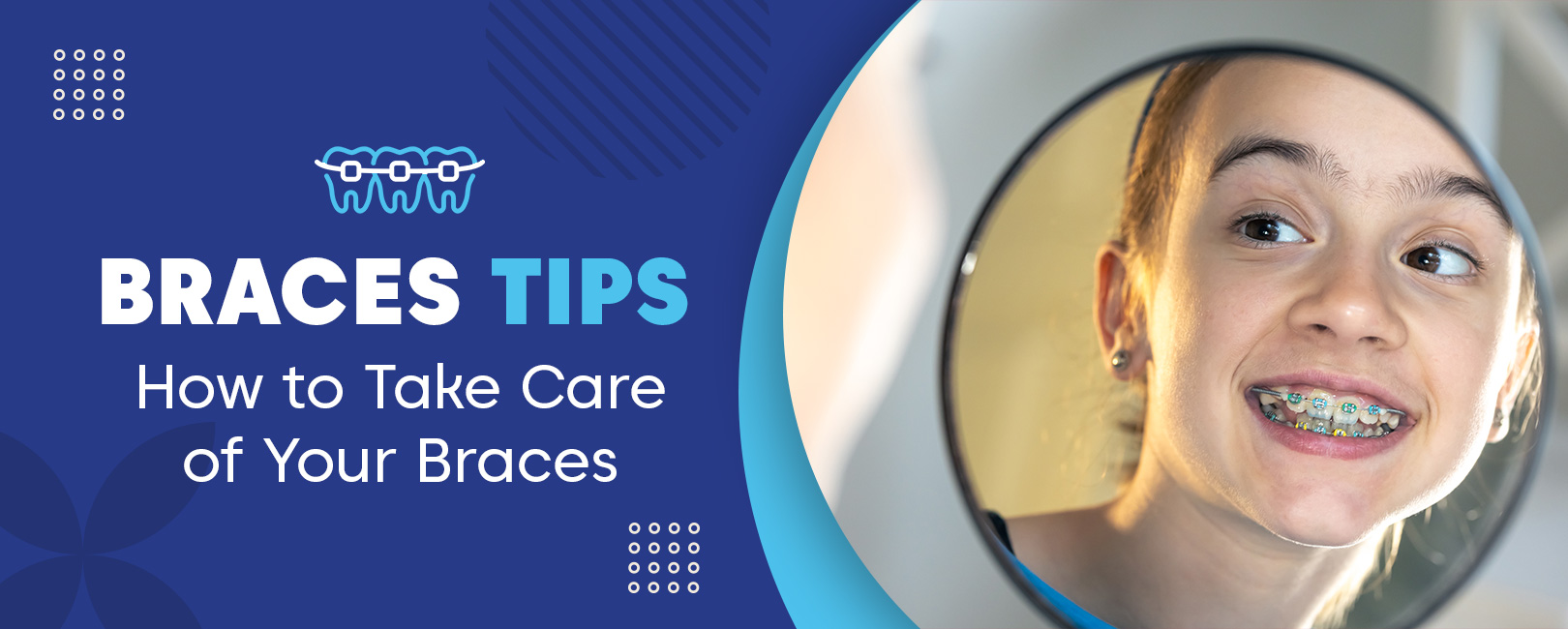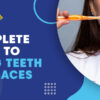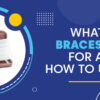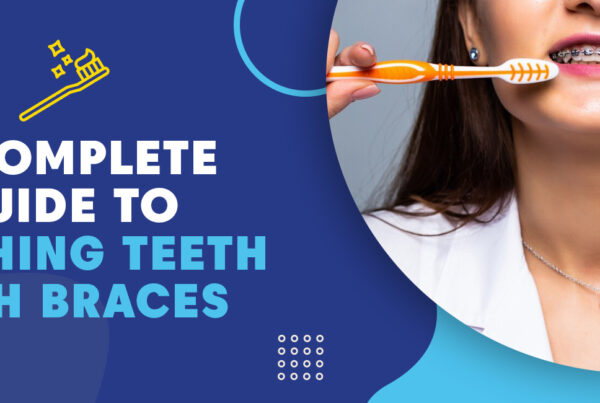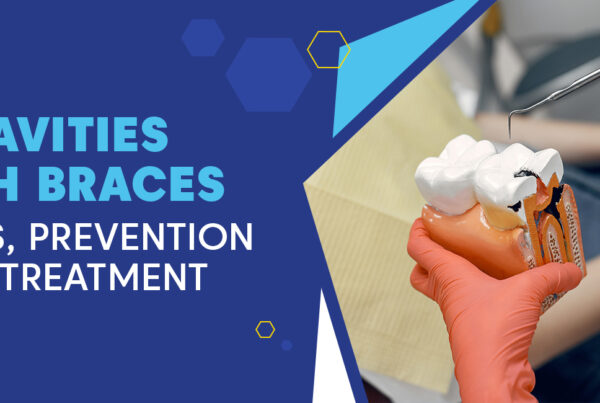If you’re wearing or thinking about getting a set of braces, you might have some concerns or challenges on your mind, but don’t worry; we’ve got you covered with some simple and helpful braces tips on how to take care of your braces.
It’s an undeniable fact that braces require a bit more dedication and care! Although you may have spent a large part of your life brushing your teeth twice a day for 2-3 minutes each time. But, with braces, you’ll realize that this schedule is no longer as relaxed and easy to follow.
However, all the effort is worth it– if you manage to keep the braces clean while your teeth are being straightened, you will be delighted with your clearly aligned smile when your braces are finally removed.
Here are some simple and helpful ways to take care of your braces to ensure they stay in top condition and you’ll be flashing that beautiful smile you’ve always wanted!
Braces Tips
Braces play an active role in correcting crowded and misaligned teeth, and this is important because an abnormal bite (also known as a “malocclusion”) can cause other problems. For example, plaque can be difficult to remove from around misaligned teeth, leading to swollen gums and tooth decay.
It’s imperative to take good care of your braces while you’re getting orthodontic treatment; it helps prevent any damage to the braces and your teeth and makes wearing braces more comfortable.
Taking care of your oral hygiene is important throughout your life, but it becomes even more important when you have braces as it prevents teeth from getting stained, keeps your gums healthy, and avoids bad breath.
If you understand the basics of orthodontic care and follow your dentist’s advice to keep your teeth and gums healthy while wearing braces, you can ensure the best result for your orthodontic treatment.
How to Take Care of Your Braces
The goals of braces are to straighten your teeth, fix bite issues and improve the overall appearance of your smile. But if you are wearing braces and don’t care about your teeth, it leads to the formation of bacteria in your mouth, the development of stains, gum issues, and any other dental problems that may appear later in life. Here are some tips to take care of your braces for preventing damage to braces and teeth.
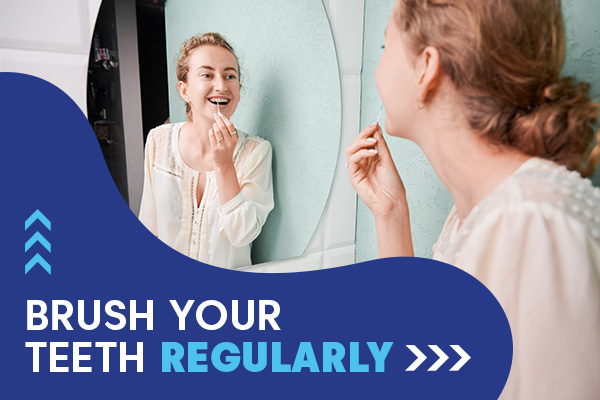
-
Brush Your Teeth Regularly
Be cautious when cleaning braces because bacteria can easily build up inside and around them. Brushing your teeth with braces is recommended twice a day for two minutes each time. It’s best to use toothpaste with fluoride and a soft-bristled brush.
Hold the brush at a 45° angle to clean around the wires and brackets of the braces, and brush from the top to the bottom of each wire. Take your time to make sure you remove all the plaque and debris, working on both the upper and lower teeth.
-
Floss Once a Day
Since a toothbrush cannot reach all the small gaps and spaces between teeth, it is advisable to use dental floss once a day. Use dental floss with a threader or other flossing aid to slide it between the teeth and remove any leftover food the toothbrush may have missed. After brushing your teeth and using dental floss, rinse with water or mouthwash to reach areas that need extra attention.
-
Avoid Sticky Foods
Sticky, hard, or crunchy foods can harm braces and prolong the treatment. Avoid foods like sticky candies, hard nuts, and popcorn; choose softer and healthier options like yogurt, cooked vegetables, and lean meats instead.
-
Break Bad Habits
You can damage your braces and delay your treatment by biting your nails, chewing on pencils, or using your teeth to open objects. To take care of your braces and ensure a happy orthodontic experience, be aware of and avoid these harmful habits.
-
Protect Yourself During Sport
If you play sports, consider using a mouth guard to prevent damage to your braces and teeth in case of a blow or impact. Your orthodontist can recommend mouthguard options that will fit your braces and give you the protection you need.
-
Immediately Report any Problem
Tell your orthodontist immediately if you experience any pain or discomfort or notice a loose bracket. Do not do any repairs yourself, as there is a risk of further damage to your braces or teeth. Your orthodontist will know how to treat any problems safely and effectively.
Food to Eat with Braces
Wearing braces can make eating quite difficult, but they are a minor bump in the road to straight teeth and a great smile. Braces can help correct misaligned teeth but require certain changes to hygiene and diet.
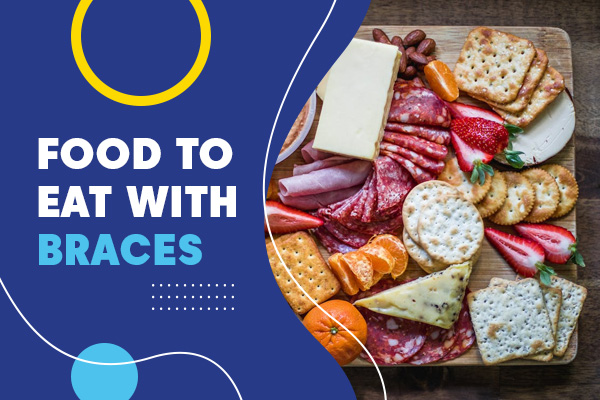
When you are looking for foods that you can eat with your braces, you should make sure that you avoid anything that could get stuck on the brackets or behind the dental arch. Don’t be afraid; there are plenty of foods that you can eat without jeopardizing your orthodontic treatment.
Soft foods for braces are:
- Soft fruits – grapes, nectarines, kiwis, tangerines, bananas.
- Vegetables – Boiling them or steaming them will help make them softer.
- Dairy Products – Yogurt and cheese are good alternatives to hard meats.
- Soft meats – Chicken, turkey, sausages, fish.
- Desserts – Pudding, jellies, fruit purees, smoothies, ice cream, flans, etc.
- Soft grains – Pasta and cooked rice.
- Soft bread – Tortillas, muffins, bimbo bread, pancakes.
- Eggs are another good alternative to hard meat.
Food to Avoid with Braces
Now that we have a clear idea of a braces-friendly diet, it’s time to find out what you can’t eat with braces.
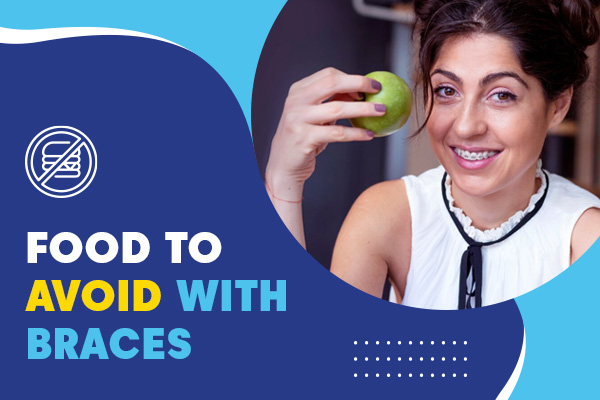
You should avoid foods that are hard or sticky, or that cause food particles to be stuck in braces. These foods risk damaging the brackets and making them difficult to clean.
- Hard candy: The sugar in this type of food is already bad for your teeth, but it can also be very harmful to your braces and the dental arch itself since you may be tempted to chew the candy.
- Sticky Foods: Sticky foods get stuck in the appliance, making cleaning a nightmare.
- Meat: In general, meat has a hard and fibrous consistency, requiring more effort to chew. However, we recommend choosing meatballs or shredded meat if you want to eat it.
- Bread: In the early stages of treatment, it is best to avoid crusty or crunchy bread. Suppose you are one of those people who cannot live without bread, use sliced bread or just eat the crumb.
Make an Appointment with Orthodontic Experts
An orthodontist does more than just fit your braces and adjust them at regular intervals. Your orthodontist is also responsible for teaching you how to care for your braces to maintain oral health.

Following these braces care tips makes it easier to develop and stick to a braces care routine. At Orthodontic Experts, we aim to help you care for your braces and keep your teeth in good shape while your braces do their job; we want you to have a healthy smile that you can be proud of for the rest of your life.
Contact us today to schedule your next appointment.


